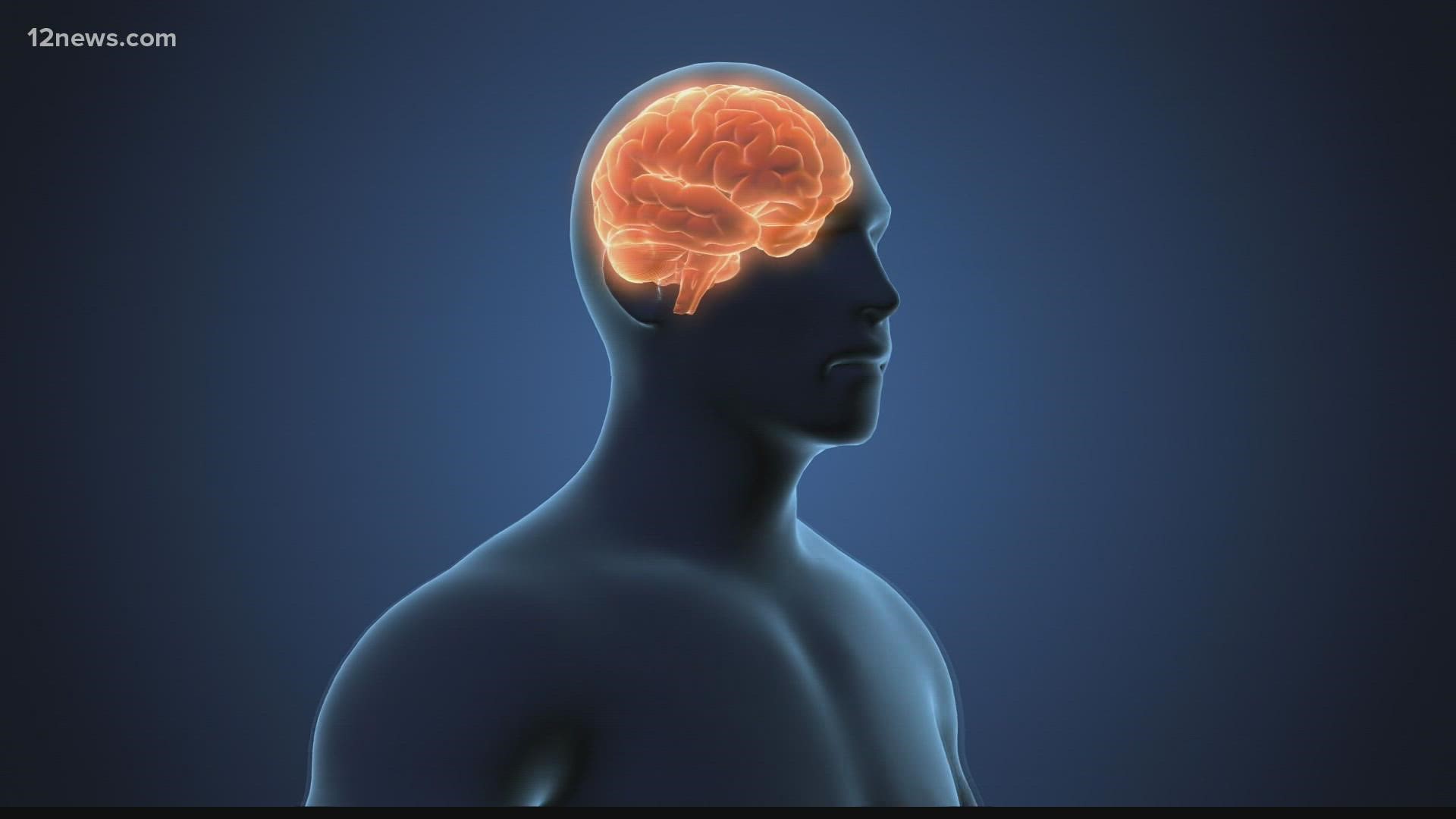PHOENIX — More Arizonans died by suicide in 2019 than in car crashes, but a local team of scientists may be closer to identifying those who may develop thoughts of self-harm.
A group led by Arizona-based researchers has found through a study that certain genes are believed to be associated with suicide, which could lead to better treatments for those who are struggling.
Genes associated with suicide
Public health data shows more than 1,400 Arizonans and 47,000 people across the U.S. died by suicide in 2019.
“Every study, it’s always a little break,” Dr. Ignazio Piras, research assistant professor at TGen said.
Piras led an international team comparing brain tissue of people who died by suicide versus those who died by natural causes. The team used the National Institutes of Health Gene Expression Omnibus to examine the orbitofrontal cortex, prefrontal cortex, and dorsolateral prefrontal cortex for genes associated with suicide.
In total, the researchers identified five genes they believe are associated with suicide based on the expression of the gene – the amount of a given gene - in the brain. The genes have connections to maladies like depression and Alzheimer’s disease.
“These genes, they were showing the same pattern in the different brain regions,” Piras said.
Potential for help
Piras said the research can help in finding treatment options for people experiencing suicidal thoughts.
“One possible application of these results, from one side, is to find some treatment that can lower the risk of suicide,” Piras said.
Piras said drugs could be identified that could target specific genes or better risk assessments for suicide could be identified based on the genes as well.
“Sooner or later, probably, we can find something that can help,” Piras said.
Current help
It was just eight months ago when Lindsay Taylor, a high school social worker and therapist in the Valley lost a student to suicide.
Taylor then lost her son a week later to a fentanyl overdose after enduring mental health struggles of his own.
"I think it’s really, really crucial as well to raising awareness on this that we take it very seriously,” Taylor said.
In her experience, Taylor said often there is a root of challenges people face, and said the idea of getting to a molecular root of suicide, could help save lives.
“I think if this can get more to the roots of it potentially, that’s huge,” Taylor said. “That can be life-saving.”
Taylor said suicide is complex and there are other factors like substance abuse and trauma that can have impacts on their own.
Identifying suicidal thoughts is important, Taylor said, as they’re not likely to go away on their own.
“If it’s something that you start to notice yourself or your kid starts to express that, I think getting help right away is key,” Taylor said.
Taylor said for immediate help if someone is in crisis, behavioral health hospitals can help. However, Taylor said those are mainly to help stabilize people who are in crisis.
Taylor said intensive outpatient treatment programs in the Valley can also help with intensive group therapy for several hours a day and several days a week.
For treatments to help, Taylor said some psychiatric offices in the Valley offer things like ketamine therapy and transcranial magnetic stimulation that can help people with certain mental health disorders like depression.
If you or a loved one are experiencing suicidal thoughts, the National Suicide Prevention Lifeline is available toll-free at 1-800-273-TALK.
Other resources available include:
- Teen Lifeline: 602-248-8336. Texting to the line is available from noon to 9 p.m. on weekdays or 3 p.m. to 9 p.m. on weekends. The hotline is also open for calls daily.
- Crisis Text Line: Text HOME to 741741
- Community Referrals: 211Arizona.org
- Statewide Resources: https://www.azspc.org/resources.html
- Crisis Teams: 480-784-1500
- Maricopa County Crisis Hotline: 602-222-9444
- Mind 24/7
- Anasazi Foundation
Up to Speed
Catch up on the latest news and stories on the 12 News YouTube channel. Subscribe today.

